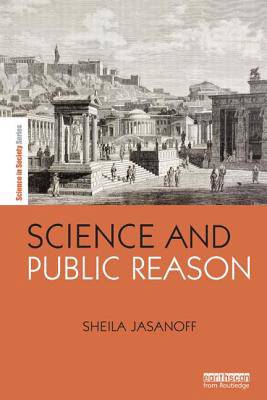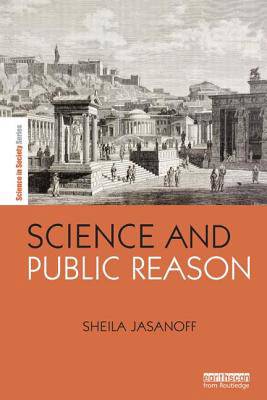
- Afhalen na 1 uur in een winkel met voorraad
- Gratis thuislevering in België vanaf € 30
- Ruim aanbod met 7 miljoen producten
- Afhalen na 1 uur in een winkel met voorraad
- Gratis thuislevering in België vanaf € 30
- Ruim aanbod met 7 miljoen producten
Zoeken
€ 106,95
+ 213 punten
Uitvoering
Omschrijving
This essay collection explores how democratic governments construct public reason--that is, the forms of evidence and argument used in making state decisions accountable to citizens. The term public reason as used here is not simply a matter of constructing principled arguments that respect the norms of democratic deliberation. My objective is to investigate what societies do in practice when they claim to be reasoning in the public interest. Reason, from this perspective, comprises the institutional practices, discourses, techniques and instruments through which governments claim legitimacy in an era of potentially unbounded risks--physical, political, and moral. Those legitimation efforts, in turn, depend on citizens' acceptance of the forms of reasoning that governments offer. Included here therefore is an inquiry into the conditions that lead citizens of democratic societies to accept policy justification as being reasonable. These modes of public knowing, or "civic epistemologies," are integral to the constitution of political culture as described in this book. Methodologically, the book is grounded in the field of science and technology studies (STS). It uses in-depth qualitative studies of legal and political practices to shed light on the cultural construction of public reason and the reasoning political subject. It employs comparative analysis to illuminate the diverse ways in which science and expertise are factored into democratic decisionmaking; and it illustrates how STS scholarship can use comparison without falling into rigidly structural analysis. The collection as a whole contributes to democratic theory, legal studies, comparative politics, and ethnographies of modernity, as well as STS.
Specificaties
Betrokkenen
- Auteur(s):
- Uitgeverij:
Inhoud
- Aantal bladzijden:
- 302
- Taal:
- Engels
- Reeks:
Eigenschappen
- Productcode (EAN):
- 9780415624688
- Verschijningsdatum:
- 23/09/2013
- Uitvoering:
- Paperback
- Formaat:
- Trade paperback (VS)
- Afmetingen:
- 155 mm x 229 mm
- Gewicht:
- 430 g

Alleen bij Standaard Boekhandel
+ 213 punten op je klantenkaart van Standaard Boekhandel
Beoordelingen
We publiceren alleen reviews die voldoen aan de voorwaarden voor reviews. Bekijk onze voorwaarden voor reviews.











